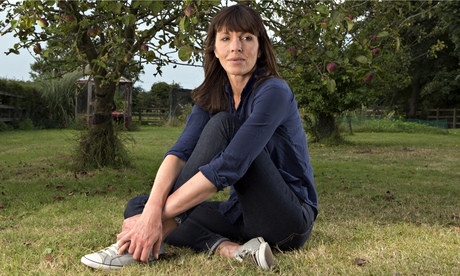
Years ago, Rachel Cusk and I did a book event together. I remember a tensely beautiful and shudderingly self-possessed young person who, as we were whisked back down the motorway to London, confided that she refused to read contemporary literature and stuck resolutely to the classics.
I was startled, even a bit appalled. But I do see now that it's precisely this uncompromising, slightly diffident yet absolutely unapologetic intelligence that I've come to find most seductive about her work. That, and the fact that she's among the very few writers who can make me laugh out loud. All of these qualities are here in abundance in her new novel but there's something else far queasier and more mysterious lurking in its pages. The most exhilarating works of fiction are surely those that leave you both satisfied and a little stirred up – and this has to be one of the oddest, most breathtakingly original and unsettling novels I've read in a long time.
Our narrator is a novelist (her personal details are kept so determinedly hazy that it feels almost embarrassing when, late in the book, someone suddenly uses her name) who is flying to Athens to teach a summer writing course. We gather that she's divorced, a mother of two boys, but even these facts are drawn in a kind of indeterminate narrative pencil, as if at any moment they might blur or be rubbed out. Far less sketchy – in fact punchy and vivid as bright dollops of gouache – are the lives and voices of those around her.
Beginning with the billionaire who "talked in his open-necked shirt" while he lunched her at his club before her flight, continuing with the man sitting next to her on the plane (referred to, somewhat comically throughout the novel, simply as "my neighbour"), and moving on through an array of friends, colleagues and students, our narrator engages in a series of conversations which form the substance of the book. Though "conversation" is perhaps optimistic. Mostly, these people simply unload themselves – marriages, families, failed love affairs – and forget to ask our protagonist very much at all about herself.
And, really, that's about it. There's no conventional narrative arc – indeed, there are so many stories-within-stories that you frequently forget who is speaking. There's no one you can root for or even believe in very strongly, and the novel offers few of the standard expected rewards of fiction.
It doesn't matter – every single word is earned, precisely tuned, enthralling. Outline is a triumph of attitude and daring, a masterclass in tone.
Some individuals crop up more than once, enough for you to begin to relish, or even hope for their reappearance. The ageing Greek from the plane, who takes our narrator out on his boat and, with heartsinking predictability, attempts a seduction, is an especially glorious creation.
So is Ryan, the fellow novelist who, rather than risk committing himself to anything, always says "I might come along later", and who spends pages unburdening himself before adding, as an afterthought: "What about yourself… working on something?"
There are episodes of unparalleled weirdness: the story of the dog and the chocolate cake has a kind of disorientating European bizarreness that brings to mind the best of Kundera or Buñuel. There is outlandish humour: the paragraph which begins with Ryan telling how he found "great winged scarab-cased creatures" flying around his room and "had to bash them to death with his shoe" and ends with him observing that he'd "forgotten how physically shy" young people were, is a sublime, Cuskian fanfare of comic non-sequiturs.
There are, too, phrases so simple yet so achingly potent that they made this writer jealous. The "primitive whorl of hair" on a sleeping baby's head. The "heavy, short-lived crawl" of the ageing Lothario swimmer.
And possibly my favourite: the pigeons advancing "in their circling, tatty formations" across the paving slabs.
Most of all though – and here's why the novel has a kind of cumulative empathetic power which ultimately moves so deeply – you gradually begin to grasp what Cusk is doing. This is no wry comedy of conversations but a cool-headed meditation on the doomed nature of relationships, on the perennial and devastating distance that exists between people or, as one of the narrator's Greek friends remarks, "the disgust that exists indelibly between men and women and that you are always trying to purge with what you call frankness" .
If Outline has an overriding theme, this is it. It's a startling and a troubling one, complex, elusive and somehow innately upsetting, and it should come as no surprise that Cusk – notoriously (and, to my mind, admirably) uncompromising when it comes to finding the rawest truth in her work – has the courage to tackle it.
Outline is published by Faber (£16.99). Click here to buy it for £13.59 with free UK p&p

